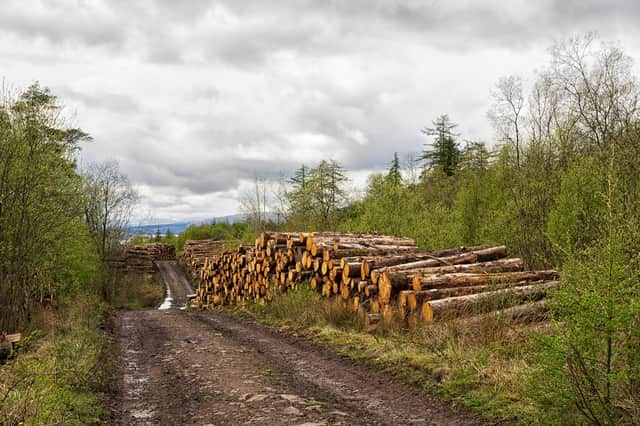UK timber shortage: Why wood is so expensive and hard to find – David Hopkins and Roderick Aitken


In Scotland more than 80 per cent of new-build housing uses timber-frame systems. Yet those of you who have made a trip to your local builders merchant as you do up your garden, or get some new decking, will find that shelves once overflowing with timber are either empty, or the wood is far more expensive than a year ago.
As the largest representative of the UK timber supply chain – a sector worth over £10 billion to the economy, providing thousands of jobs across the country in forestry, sawmills, high-tech manufacturers, in merchants, and housebuilding – the Timber Trade Federation has been inundated with requests to explain what is happening. Suddenly wood, a material so ubiquitous it is nearly invisible, is making global headlines, and many people are asking the same question: where has all the timber gone.
Advertisement
Hide AdAdvertisement
Hide AdThe mystery deepens when a glance at the numbers shows timber imports at near-record highs. More than 6.6 million cubic metres of softwood – the most common house building and DIY product – were imported into the UK in 2020.
This is a higher volume than the preceding two years and comes despite a pandemic and quarantine shutting down much of the construction industry in March and April of last year. Homegrown timber production has been relatively consistent at about three million cubic metres. What has changed is not supply, but demand.
Demand for wood products is such that sawmillers and merchants cannot keep up; with timber snapped up by manufacturers and major house builders before it lands on the docks. Construction is booming across the country, and millions of people stuck at home during the pandemic with more time and a growing bank account as they avoid travel or eating out are renovating their homes.
There are other contributing factors to this tension between supply and demand. Timber is a product in a global marketplace. As governments look to incentivise a ‘green recovery’, whether in the US and or the “Renovation Wave” in the EU, more timber is being used across the world to assist with this.
This recognition of timber as vital for low-carbon construction means demand should stay relatively buoyant, even when this peak dips. The Climate Change Committee has recommended using more wood in construction to help turn our built environment – responsible for 40 per cent of emissions – into a form of carbon-capture-and-storage, as well as to provide a substitute for carbon-intensive materials like cement and steel.
The good news is there is plenty of sustainable timber to meet this demand and a balance will start to be restored between supply and demand as vaccinations roll out, travel opens up and other consumer behaviour resumes.
However, this may be of little comfort to those of you seeking to renovate your garden this summer. Neither trees nor sawmill capacity grow overnight. It is a good reminder of the long-term thinking businesses and government will need to create truly sustainable supply chains in the future.
David Hopkins is chief executive of the Timber Trade Federation and Roderick Aitken is director of timber merchant Gilmour & Aitken
A message from the Editor:
Thank you for reading this article. We're more reliant on your support than ever as the shift in consumer habits brought about by coronavirus impacts our advertisers.
If you haven't already, please consider supporting our trusted, fact-checked journalism by taking out a digital subscription.
Comments
Want to join the conversation? Please or to comment on this article.
